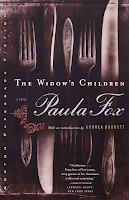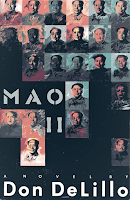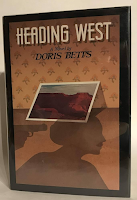The wheel went round. The thread snapped, but was re-knit again. In hell the limbs of sinners are broken and mended, broken and mended. Men and women lie pell-mell together, naked as in the marriage-bed .There is a promise of water, but no water. There is no light and yet they see new torments approaching, and the stony looks of devils standing by. The tears dried on her cheeks as she sat spinning, and thinking of hell. In hell, too, as in heaven, the tears are dried. For all the anguish, for all the despair, no tears can break out over the burning eye-balls. Now Don Juan had come back from damnation to tell of it.
The story goes: the lecher Don Juan, caught in flagrante delicto with Doña Ana, kills Ana's father, the Commander. Later, he visits the Commander's tomb, where the statue of the man invites him to a fine dinner. Instead of a fine dinner, Don Juan receives his just desserts: the earth opens up and demons drag him down to hell. It's a difficult story to believe, but that's what Don Juan's servant, Leporello, insists, and so Doña Ana goes with her reluctant new husband, Don Ottavio, to Don Juan's village, Tenorio Viejo, to inform the lecher's family that he has died. She discovers few friends of Don Juan among the villagers there; even his father, Don Saturno, seems to understand that his son was a rather nasty piece of work. And yet the death--if indeed he really has died--of the don only promises to throw the village into turmoil.
After the Death of Don Juan is, like Townsend Warner's The Corner That Held Them, more interested in capturing a wide view of a place than it is an individual character. We may think, briefly, that it is Doña Ana's book, or perhaps Don Ottavio's, but when the nobleman and noblewoman arrive at Tenorio, the novel's perspective expands to take in all of the villagers who have long battled for safety and dignity under the rule of Don Saturno and his family: the miller, the sacristan, the seamstress, the many olive farmers. The villagers immediately set to discourse, first over whether they truly believe that Don Juan is dead, and then over what it means. They talk themselves into believing that the death of the don means that the money that went to support his drinking and whoring will be returned to the village, and that now they will be able to implement a scheme of irrigation that will increase the yield of their olive trees.
The back of my copy of After the Death of Don Juan describes the book as Townsend Warner's response to the Spanish Civil War. I wondered about that; obviously, it's set in Spain, but I couldn't easily make out any particular analogs of various people or factions, as far as I know them. And yet, it's a book that captures something interesting about class, and class warfare. The villagers find that Don Saturno, an intellectual and dilettante, is as enthusiastic about the irrigation plan as they are, and already has plans drawn up. But this detente between the feudal lord and his subjects is interrupted by the return of--spoiler, you guessed it--Don Juan, who, as it turns out, has not been dragged to hell at all. Talking with his estranged son, Don Saturno finds that all his noblesse oblige will amount to nothing; when he inherits the estate, Don Juan intends to cancel the leases and trap the villagers in cruel bondage. There's something here, I think, about the way that class interests win out over personal kindness; Don Juan understands that his position as lord is an essentially cruel one and has no delusions about whether it is possible for the lord and his workers to be on friendly terms. The villagers only dimly sense this, but they understand that Don Juan's return means them no good, and the novel ends with a bloody and doomed assault by the villagers on the castle.
Though it's set in 18th century Spain, After the Death of Don Juan struck me as Sylvia Townsend Warner at her most Dickensian--the large cast of characters, the broad (and funny) humor, the attempt at circumscribing the whole social relations that define the town. In this way it's very different than the books that made me fall in love with her as a writer, like Mr. Fortune. Yet, I love how she, as a writer, can commit that eloquent, sardonic voice to such different places and times: colonial Polynesia, a 14th century convent, Victorian England. In each instance, she captures something both funny and dark about human nature, and After the Death of Don Juan is no exception.










